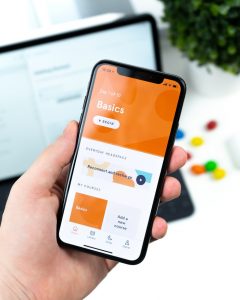The Market of Zen
By Kristin Acheson
Marketing Writer

Mindfulness apps like Headspace and Calm have come to fruition during the hard months of the pandemic. These apps have even lowered their costs for students to ensure students can access their annual subscriptions. Headspace launched in 2010 on the Google Play Store and Apple App Store and has had enormous growth in its subscription-based business model, but how will they continue to improve? The company has expanded from the personal experience of Andy Puddicombe, founder of Headspace, in mindfulness as a Tibetan monk to now working with big brands such as Nike and Hinge on specific meditations.
In August 2020, John Legend was announced as the first Chief Music Officer of Headspace which brought attention to the new meditations focused on music to subscribers. Headspace is the frontrunner in the marketplace of Zen with the Calm app running right behind them. Calm has introduced many nighttime remixes of pop songs and introduced meditations made by stars such as Harry Styles. What made Headspace successful are key elements for app growth such as the “freemium” model in which subscribers can get months free before starting payments, celebrity influencers promoting the product, and the gamification of the setup of the app itself. During the pandemic, these apps have focused on making music to keep you focused because with the transition to remote work, distractions are more likely to happen. Headspace caught onto these problems in the workspace and has built up their Headspace for Work business division.
The market for mindfulness meditations apps is seeing immense growth with Headspace and Calm claiming 70% of the overall market share as seen in a recent press release. These apps are projected to see further success with an estimated compound annual growth rate of 8.5% between 2019 and 2029. While the projected growth is strong, it should remain in consideration the other possible innovations that may occur with mindful meditation apps. Other smaller competitors such as the Insight Timer app and Aura app which also include free meditations will try to differentiate their competitive products and potentially explore experiential marketing. Current events may even shake up the meditation app market depending on who is able to adapt and capture attention best. For example, Headspace included many meditations during Election Night in 2020 and their social media mentions increased by 248%.
This new thriving market of mindfulness will continue to expand with the growing amount of stress in the world right now and especially with lockdowns in place. Sometimes it is odd to think of Zen as being bought and sold, but these apps, even in their “free” versions, have been a successful way of accessing the users that these companies seek to help.
Contact Kristin at achesokr@shu.edu

